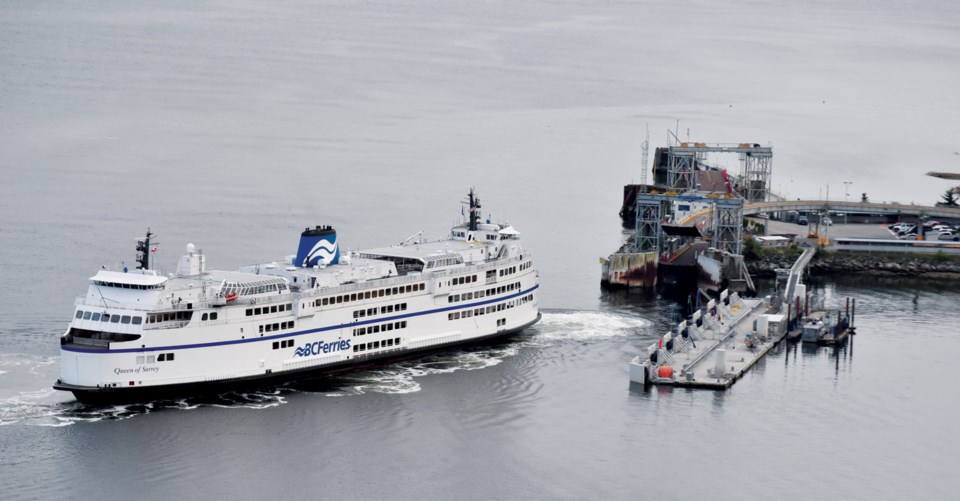Transport Canada is ending the temporary exemption that allowed BC Ferries passengers to remain in their vehicles on lower, closed car decks, but the ferry company has found a way to allow Langdale-Horseshoe Bay travellers to continue staying with their cars.
Premier John Horgan, meanwhile, is promising to press the federal government to reverse the decision so travellers on all routes can remain on the lower car decks.
The company announced Sept. 9 that Transport Canada is “rescinding the temporary flexibility it granted to ferry operators” as of Sept. 30.
Transport Canada started allowing the exemption early in the spring to help travellers maintain distancing during the COVID-19 pandemic.
“During the pandemic these risks were mitigated with additional safety procedures and patrols,” BC Ferries said. “However, Transport Canada has now advised BC Ferries that measures have been developed and implemented to prevent the spread of the disease in all transportation modes and businesses across Canada.”
At the end of the month, the no passengers on closed car decks rule will go back into force on the Powell River-Comox, Horseshoe Bay-Departure Bay, Tsawwassen-Swartz Bay, Tsawwassen-Duke Point and Tsawwassen-Southern Gulf Islands routes.
“On the Horseshoe Bay-Langdale route, BC Ferries has approval from Transport Canada to safely allow passengers to remain on the main vehicle deck following modifications to the vessels and procedures,” the company said.
Southern Sunshine Coast Ferry Advisory Committee chair Diana Mumford told Coast Reporter the modifications, which will involve keeping the rear doors of the lower deck open to allow it to qualify as an open car deck, are a “very positive new change” in dealing with a situation that has frustrated Route 3 travellers since the rules were first implemented.
Horgan called Transport Canada’s move “an unwelcome intrusion by the federal government” and said he’s already been in touch with the deputy prime minister about reversing the decision and will “pursue it aggressively.”
“We believe that we can safely transport people, provided that we have support and cooperation from Ottawa,” Horgan said during a Sept. 9 media availability. “This is not something we sought, this is something that's being imposed, returning to a previous situation that we also felt was a bit heavy handed for the inland waters that our ferries travel.”
Commenting on the return of the federal regulation on other routes, BC Ferries president Mark Collins noted that customers are legally required to comply and said BC Ferries will continue to have zero tolerance for abuse towards its employees.
“Failure to follow the direction of our crew or abuse towards an employee may result in denial of service and Transport Canada enforcement measures,” he said.
In a recent update to members, BC Ferry and Marine Workers Union president Graeme Johnston said the union was expecting the Transport Canada announcement and was “deeply concerned about the risk [ending the exemption] may pose to our members, especially when winter weather makes social distancing that much more difficult.”
Johnston said the union will “advocate for alternative solutions.”



